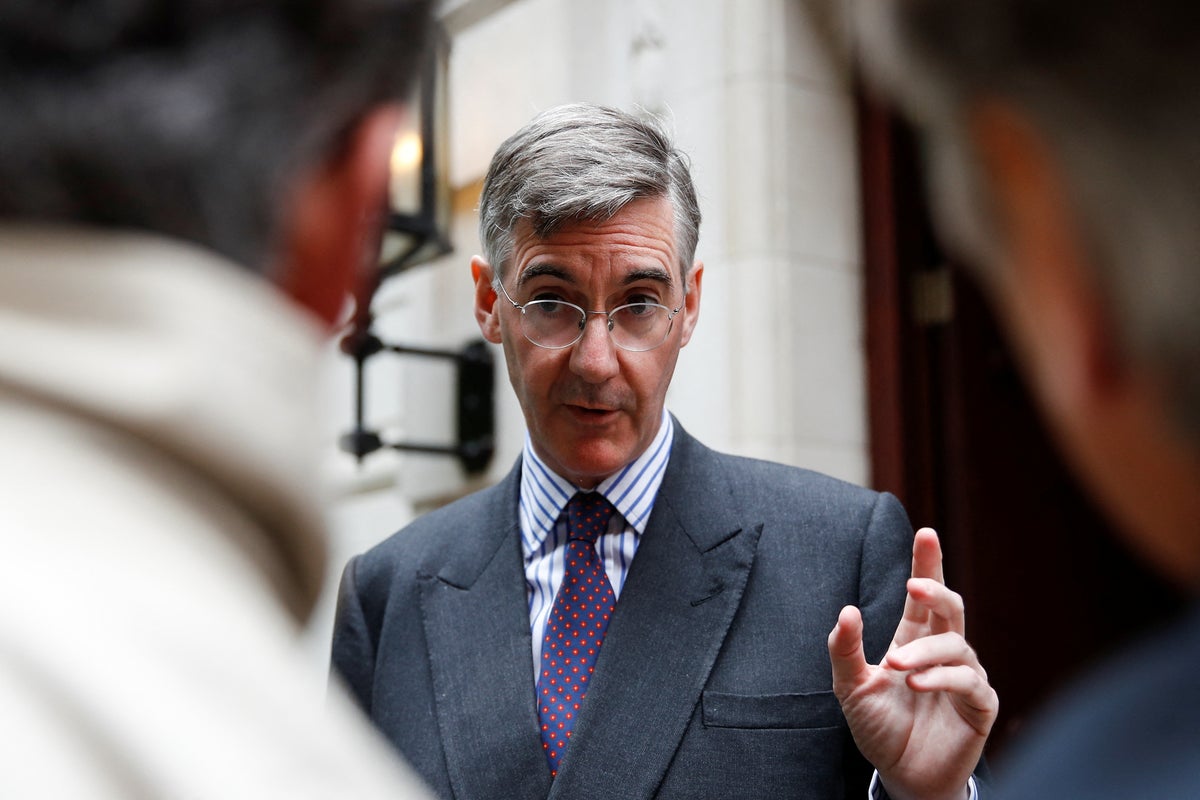
The UK drinks industry has responded with alarm to a proposal from Jacob Rees-Mogg that post-Brexit deregulation could include allowing sparkling wine to be sold in plastic bottles.
The Brexit opportunities minister identified a rule requiring fizz to be sold in glass bottles as one of the Brussels regulations which could be expunged from UK law following EU withdrawal.
But the Wine and Spirits Trade Association warned that any change must not jettison health and safety requirements, with the high pressure created by bubbles during fermentation making plastic an improbable and expensive choice of container.
“The WSTA – and the world-leading UK wine industry – are very keen to make the most of any post-Brexit opportunities to help the industry recover and grow. This includes removing unnecessary and costly red tape,” chief executive Miles Beale told The Independent. “But not at the expense of basic health and safety.
“Sparkling wine contains roughly the same pressure as the tyre of a large van. The English sparkling wine PDO (protected designation of origin) requires bottle fermentation, like Champagne does, which requires a container that could safely withstand that sort of pressure for long periods in a cellar or on shelves.
Other formats for some sparkling wines are possible, but plastic bottles would not be the first choice.”
Mr Beale said that the adaptation of bottling lines and retooling to accommodate different types of packaging, such as plastic, would impose “significant” costs. And there would be “significant environmental concerns” about switching from recyclable and reusable glass to plastic.
“All in all, this proposal is unlikely to be economically viable in the relatively small volumes we are talking about – or sustainable,” he said.
Mr Rees-Mogg’s proposal came as he launched a new Brexit dashboard, which will be updated every three months to show how many of the 2,400 pieces of EU legislation still in place in the UK have been removed.
The online tool was denounced by Labour as a “vanity project” for Mr Rees-Mogg, who has so far struggled to find many “Brexit opportunities”.
The Cabinet Office minister said the dashboard would ensure the public can “join us on this journey to amend, repeal or replace” retained EU law in a bid to cut at least £1bn of business costs from “EU red tape”.
Giving examples of the kind of red tape he wants to sweep away, he said: “Did you know you can’t sell sparkling wine in a plastic bottle? You may think drinking sparkling wine out of a plastic bottle is dreadful, but if you want to, why should there be a law stopping you?”
The WTSA is currently campaigning against planned changes to alcohol duties hailed by Boris Johnson as a benefit of Brexit, but regarded by the industry as damagingly complex.
Labour’s Stephen Doughty described Mr Rees-Mogg’s dashboard as “a vanity project”.
“It’s quite extraordinary that on the day that inflation tops 9 per cent, [while] the cost of energy is soaring, families [are] facing massive pressures wondering how they will put food on the table, [and] prices [are] rising at the fastest rate of increase for 40 years, the government’s offer today to the British people is a digital filing cabinet of existing legislation, which the gentleman describes, in his own words, as marginal,” said the shadow foreign minister.
Mr Rees-Mogg later acknowledged that many of the 2,400 rules were of limited significance in themselves.
But he told reporters: “It’s going to be lots and lots of little things. But these little things add up into something that is fundamental and revolutionary.
“Each and every one of them is something which is easy for people to pooh-pooh and say ‘What’s the point of this effort? The mountain heaved and brought forth a miserable mouse.’ But this is bringing forth elephants cumulatively.”
Mr Rees-Mogg recently appealed to readers of a tabloid newspaper for suggestions of which EU regulations to slash.
As well as fizz in plastic bottles, he today suggested that changes could be made to end limits on the power of vacuum cleaners, scrap mandatory training update courses for HGV drivers or abolish rules which require B&B hotels to register as package tour operators if they provide vouchers to dine in local restaurants.
He rejected suggestions that a bonfire of rules would turn the UK into a “Wild West” unregulated zone, and insisted that his drive was “not about lowering standards”.
Despite a string of reports – including from the government’s own Office for Budget Responsibility – suggesting that Brexit has cut UK GDP, Mr Rees-Mogg refused to give any estimate of how much benefit or damage it was doing to the economy, saying it was impossible to know how Britain would have fared if it had stayed.
He told MPs: “With inflation running high we need to search everywhere and under every stone and sofa cushion for supply-side reforms that make products and services cheaper, make things easier for business and ultimately grow the economy and cut the cost of living.”







